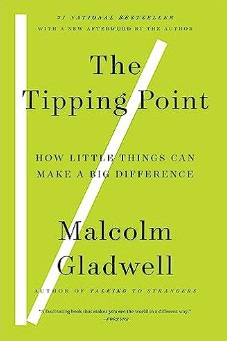The Good Samaritan Parable and an Uncomfortable Truth about Morality
The Darley-Batson study (1973) suggests we very well might be capable of doing things we believe ourselves incapable of doing—based on the situation in which we find ourselves.
It’s natural for individuals to think of people as either moral or immoral, but the reality is more complicated.
In his best-selling book The Tipping Point (2000), Malcom Gladwell cites several compelling studies that suggest morality and behavior are largely situational.
Take, for example, the Darley-Batson study (1973), which was inspired by the Bible’s tale involving a Samaritan woman who helped Jesus. The study ran as follows (per Gladwell):
Darley and Batson met with a group of seminarians, individually, and asked each one to prepare a short, extemporaneous talk on a given biblical theme, then walk over to a nearby building to present it. Along the way to the presentation, each student ran into a man slumped in an alley, head down, eyes closed, coughing and groaning. The question was, who would stop and help?
Darley and Benson introduced several variables to determine what might make a seminarian more or less likely to stop and help the “distressed” person. The researchers asked various questions—e.g. did the seminarian enter the seminary for their own spiritual fulfillment or to help others—and gave various sets of instructions. Some were told the Good Samaritan story immediately before he passed the man in the alley, others were not. Some were told to hurry because they were running behind schedule, while some were told they could take their time.
The results? Well, if you are thinking that a student who had said he had entered the faith to help others might be more inclined to stop and help the man in the alley, you’d be wrong. Likewise, if you thought someone who had just heard the story of the Good Samaritan might be more inclined to stop and help, you’d also be wrong.
In fact, the authors state: “Indeed, on several occasions, a seminary student going to give his talk on the parable of the Good Samaritan literally stepped over the victim as he hurried on this way.”
What was the one variable that did make a difference? Telling the seminarian he was late. What does that mean? Gladwell has a hypothesis:
What this study is suggesting, in other words, is that the convictions of your heart and the actual contents of your thoughts are less important, in the end, in guiding your actions than the immediate context of your behavior. The words “Oh, you’re late” had the effect of making someone who was ordinarily compassionate into someone who was indifferent to suffering—of turning someone, in that particular moment, into a different person. (emphasis mine)
And the Darley-Batson study is not alone. Other studies—Philip Zimbardo’s prison experiment that saw test subjects take on their roles as guards and prisoners to a troubling degree; the Hartshorne-May experiment that showed vast variation in whether or not children would cheat on tests based on their situational conditions—have yielded similar results.
The troubling conclusion: we very well might be capable of doing (awful) things we believe ourselves incapable of doing based on the situation in which we find ourselves.
To me, the studies are a great warning. One should resist the temptation to take pride in one’s own perceived morality; just be thankful that God or fate has placed you in a position in which (today, at least) you were able to do the right thing.






A few lifetimes ago I read a Dean Koontz novel, I believe it was titled Door to December. I remember coming across a paragraph in there that, even to my juvenile brain, taught me a life lesson. And upon becoming a mom, I remembered that lesson. If I had some time I could probably find the quote, but suffice to say, it talked of anyone being capable of literally anything given the circumstances they find themselves in at the moment -- in the novel's case, it was murder. Becoming a parent certainly unlocked a "mama bear" in me I never knew existed, and I understood that when it comes to my kids, who knows exactly what I'd be capable of.
And this is also why I always say "never say never." As soon as you do, you find yourself in a predicament that pushes you to do the very thing you said you'd never do. 🤷🏻 A Murphy's Law type of thing, maybe... 😅
Indeed. Fear is an insurmountable driving force for who knows what. 😐 Definitely praying my Faith wins out over Fear when faced with a challenge... 🍂